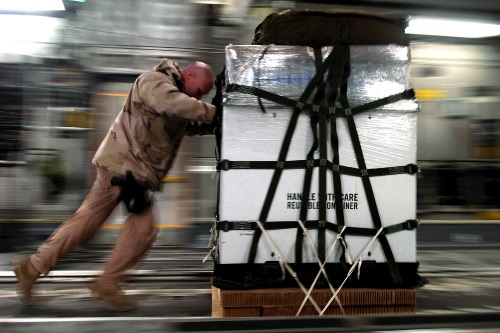
Brazil topped the list of countries suffering from heightened cargo theft risks in 2015, according to supply chain specialist BSI.
The country saw its highest level of cargo theft in 23 years in 2015, with a 23 per cent increase in the number of reported incidents to 7,225 that puts it ahead of Venezuela and Germany among the top three cargo theft hot spots.
The figures are detailed in BSI's latest Global Supply Chain Security and Business Continuity Risk Index, which suggests reasons for the upswing in Brazil include the severe impact of the country's economic crisis in Rio, and the increased law enforcement efforts in Sao Paulo - traditionally the leading area for theft in Brazil - driving a shift in more organized criminal activity to Rio de Janeiro.
"With established and well organized 'fencing' networks in place, thieves have been able to target a range of product types, covering everything from food and beverages to cigarettes, electronics, pharmaceuticals," says the report.
The escalation is continuing into 2016 due to new gang activity in the Rio area and the movement of some gangs from Sao Paulo, says BSI. Initial estimates suggest that theft increased by another 11 per cent in the first quarter of 2016.
"This increase in theft forced companies to either relocate or adopt additional costly security measures, with figures showing cargo transportation companies in Rio devoting an average of 15-20 per cent of their budget to security measures."
Venezuela
Similarly, in Venezuela, the worsening political and economic situation has continued to impact the availability of food and basic necessities. This in turn has led to an increase in looting and cargo truck hijackings of typically low-valued goods like rice, water, flour and liquor. In Aragua State for example, the rate of cargo theft has increased by 500 per cent.
Thieves are using violence and tactics that are more frequently reserved for high-value shipments rather than loads of food, says BSI, and this is exacerbating the scarcity of goods as cargo truck drivers refuse to transport them.
Governmental unrest led authorities to seize at least one major factory belonging to a US-headquartered personal care products company in July, while manufacturers of automotive, food, consumer, and other goods have scaled back their operations over continuity concerns.
Germany
Daring vehicle shipment thefts have become increasingly commonplace in Germany. The figures show increases in both slash-and-grab and full-load thefts, with particular routes around the main cities and near borders being the most severely affected.
So far in 2016, German authorities disrupted two organized groups operating in these states that each perpetrated scores of cargo theft incidents involving trucks over the past two to three years. Authorities disrupted a group suspected of stealing more than 100 cargo trucks across Germany since 2013. Separately, a group based in Lodz, Poland was apprehended and accused of stealing at least 60 fully-loaded cargo trucks in Berlin, Brandenburg, and Saxony over nearly two years. The statistics show that Saxony-Anhalt saw more than twice as many slash-and-grab incidents in first half 2016 compared to first half 2015.
Terrorism
In 2015 BSI recorded 319 supply chain terrorism attacks. The figures showed that the proportion of supply chain attacks compared to all terrorism attacks increased 16 per cent, and attacks were recorded in a 33 countries, 38 per cent more than the previous year.
The report indicates terrorists targeted a wider range of industries than ever before. Attacks on agriculture and food and beverage targets more than tripled since 2013, and attacks on industrial and manufacturing materials, metals, and pharmaceutical cargo more than doubled.
Jim Yarbrough, Global Intelligence Program Manager at BSI commented: "Companies have always faced a wide range of challenges to their supply chain, but these latest figures indicate just how severe the impact of violent theft can be.
"These events are creating extreme levels of risk for organizations, both directly affecting the bottom line and disrupting the supply chain in ways which, if not tackled, could do serious harm to a company's hard-earned reputation."
©
SecuringIndustry.com





